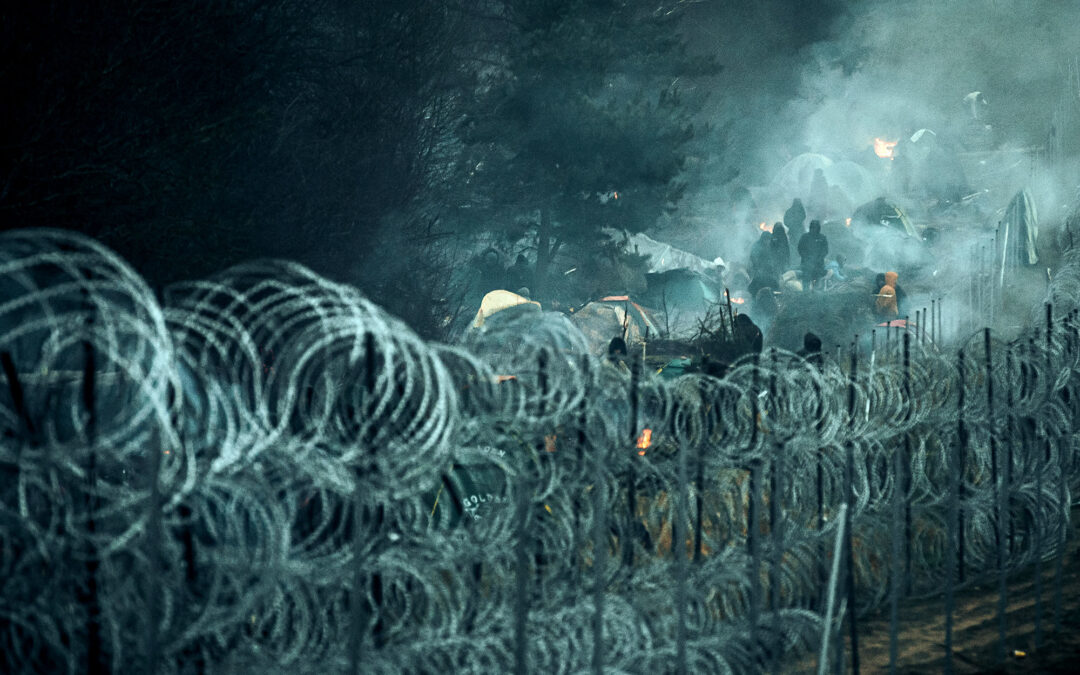A group of activists who tried to destroy part of a razor-wire fence on the border with Belarus – which had been erected by Poland to prevent a wave of crossings by migrants and asylum seekers – will face trial after being indicted by prosecutors.
The incident took place in August last year, shortly after the start of a migration crisis orchestrated by the Belarusian authorities, who sought to help tens of thousands of people from the Middle East, Asia and Africa cross into the European Union.
The activists – 12 Polish citizens and one Dutch – were detained by border guards after using wire cutters and cords to damage the fence, which had recently been erected by the government to “protect Poland from terrorists”.
Funkcjonariusze SG wspólnie z żołnierzami WP zatrzymali grupę 13 osób(12 ob.🇵🇱i 1 ob.🇳🇱), które zniszczyły zapory techniczne na granicy🇵🇱-🇧🇾. Wśród zatrzymanych jest Bartosz K. Trwają czynności zmierzające do postawienia tym osobom zarzutów. #NaStraży pic.twitter.com/kDMFwO8fJl
— Straż Graniczna (@Straz_Graniczna) August 29, 2021
The group, who shared images of the stunt on social media, described it as an “act of civil disobedience” to express opposition to the government’s “cruel” decision “to close the border to people who flee their countries for fear of torture”, reports the Polish Press Agency (PAP).
One of their members – who can be named only as Bartosz K. under Polish privacy law – is a prominent activist associated with the Open Dialogue Foundation, an NGO, and who has often been involved in anti-government protests.
The activists said at the time that they were “ready to bear the consequences” of their actions. The interior minister announced soon after that they would indeed “face all criminal consequences” for their “absolutely unacceptable” behaviour.
Yesterday, prosecutors announced that six members of the group have been indicted for the crime of destroying property. The other seven have been indicted for taking part in the action despite knowing that other participants were “committing a violent attack on property”.
Earlier this month, prosecutors discontinued proceedings against another activist, from the Catholic Intelligentsia Club (KIK), who had been involved in providing humanitarian aid to border crossers but was detained and charged with people smuggling.
A large number of NGOs, charities and other organisations and individuals have sought to provide aid to those crossing the border. Some have also criticised the government for its policy of pushing migrants back into Belarus, a practice that has been found illegal by Polish courts and condemned by the UN.
However, the government argues that it has a duty to prevent illegal and uncontrolled crossings over its border, which is also the eastern frontier of the EU and NATO. It notes that the crossings have been orchestrated by Belarus as part of a “hybrid war” against the West.
Main image credit: Irek Dorozanski / DWOT

Daniel Tilles is editor-in-chief of Notes from Poland. He has written on Polish affairs for a wide range of publications, including Foreign Policy, POLITICO Europe, EUobserver and Dziennik Gazeta Prawna.




















